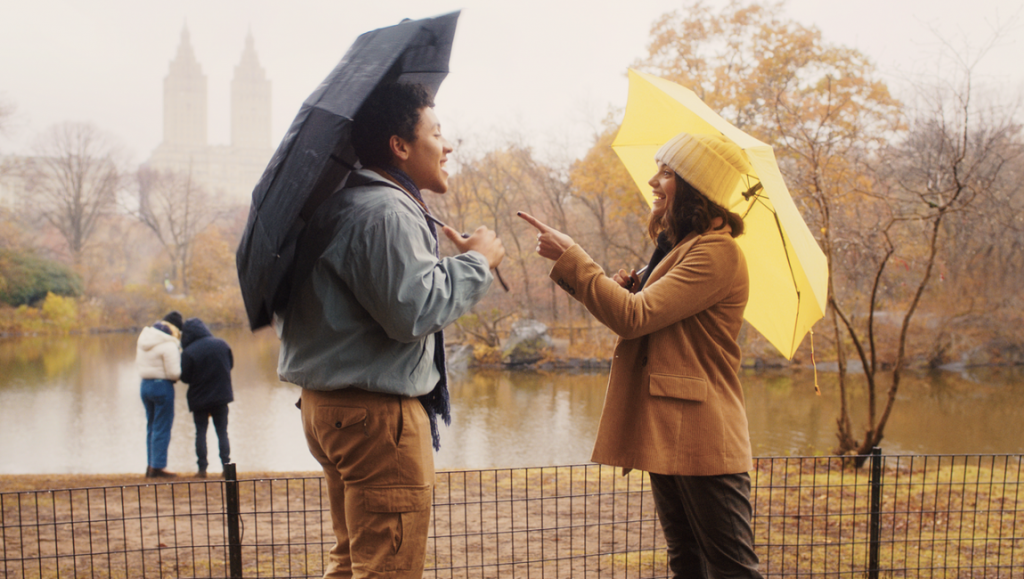Dating abd New York offers sporadic pleasures, but can’t shake loose its obvious cribbing of familiar cinematic influences.
Dating and New York, Jonah Feingold’s feature debut after working in shorts and television for the past decade, is a film built from the scraps of its evident influences. The window dressing here immediately recalls Wes Anderson: the film opens with (and sustains) a storybook-esque voiceover framework, and its twee tenor reinforces such comparisons, though the specifics of this quality diverge across the film. Dating and New York’s content, meanwhile, is more Woody Allen: its study of relationship dynamics, frequent instances of twinkling jazz, and, well, its title, which could pull substitute duty on roughly three-quarters of Woody’s oeuvre. That’s to say, much will be familiar for viewers in this tale of — stop me if you’ve heard this before — two unattached singles who choose to execute their youthful right to a friends-with-benefits arrangement until complications arise, leading to the ultimate consequence of love. Milo (Jaboukie Young-White) and Wendy (newcomer Francesca Reale, who looks like a striking mix of the striking Anya Taylor-Joy and the striking Daisy Edgar-Jones) are twenty-somethings who, after an enjoyable date facilitated by the fictional Meet Cute app, continue on their dating way, to diminishing returns. Consequently, they return to each other’s orbit, the aforementioned FWB agreement is struck, and rom-com beats start getting ticked off.
If that general introduction to the film seems jaded, it’s largely a commentary on the cyclical, recyclable substance of the rom-com genre. But there’s actually plenty of freshness in Dating and New York’s moment-to-moment business. The comedic elements, while fairly pedestrian on the whole, are periodically upset by inspired moments of either anarchic or purely nonsensical bits of humor, such as when Milo details a particularly bad date where he’s repeatedly asked what time he was born. The film’s visual design keeps to this general pattern of occasional inspiration, supplementing mostly pro forma filmmaking with the occasional quirky flourish, like an abortive fisheye zoom and some vertical formatting (we are talking Millennial romance, after all). Feingold also seeks to flip the genre’s classic gender norms on their head, pitching Milo as the half longing for commitment while his sorta-partner clings to her relationship freedom.
But while Dating and New York’s periodic stylistic and thematic fillips keep it from ever careening into nonstarter territory, it’s still very much a case of sporadic pleasures. In fact, a tidy summation of the film can be easily extrapolated from Milo and Wendy’s deepening conversations as their relationship evolves: it rarely scans as less than authentic, but it also never moves much beyond shallow signifiers of depth. The film’s emotional climax, and its immediate narrative framework, further garble the film’s attempts at contemporaneous commentary on modern relationships, veering hard into cliché. Dating and New York has no idea how to end without defaulting to weathered resolution. It attempts to disguise its derivative genre core behind a melange of recognizable cinematic influences and occasionally subversive quirks, but it doesn’t ultimately amount to a whole lot more than a minor retuning of those exhausted parts.
Originally published as part of Tribeca Film Festival 2021 — Dispatch 5.


Comments are closed.